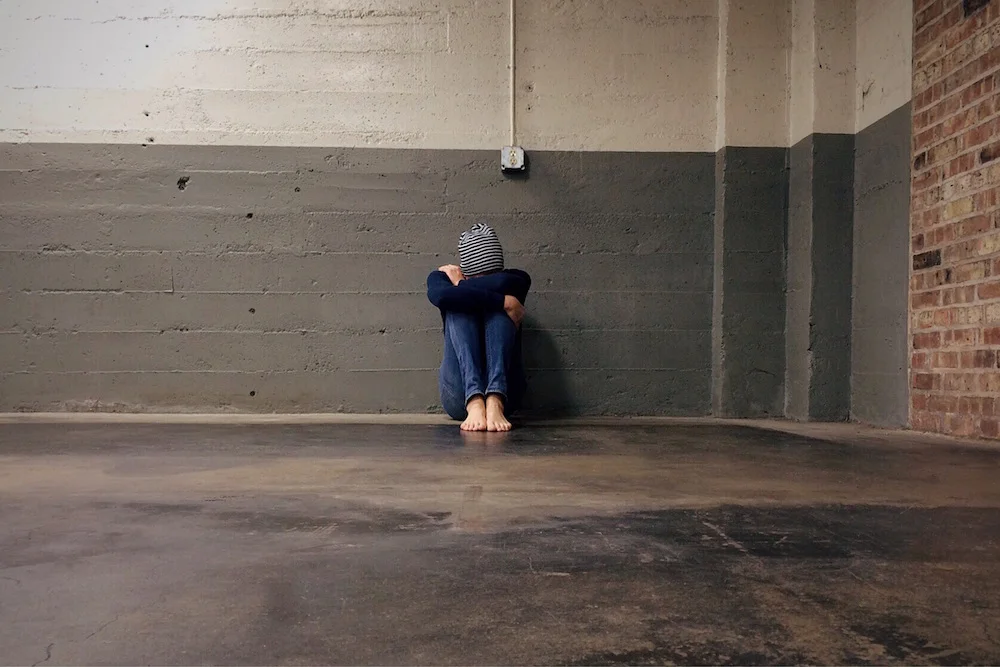Head case

I subscribe to a lot of different wellness websites, nutrition blogs…obviously. My Feedly is an infinite scroll of sites and stories that are intended to help readers feel better. Yoga is a popular subject, as are easy weeknight recipes. Swapping from synthetic to clean beauty products is a hot topic at the mo, as are panic attacks. There are lots and lots of stories to help people with panic attacks. Social anxiety is another big one. Depression is in regular rotation. Dinner, dermatology, and depression, basically. We are a hungry, vain, and sad lot.
Look, it’s 2017. It’s alright to be stressed. I am, quite often. Whether you’re in full-time employment or living that freelance life, most everyone I know is also juggling what feels like too many deadlines and not spending enough time moving, outdoors, seeing their parents/partner, or just leading a life that feels more ‘overstuffed’ than ‘full.’ If you’re a person concerned with wellbeing in 2017 you either know someone struggling with one or the other, are struggling yourself, or have struggled with it in the past. As a condition anxiety has evolved from an umbrella definition for a general sense of uneasiness into a wider cultural symptom; panic attacks, some sort of SSRI prescription, and generalized social anxiety are as common as stir-fry recipes and smoothie bowls. It follows, then, that there are innumerable think pieces and updates on social media from high-performing individuals calling out regular run-ins with depression and other physical and emotional symptoms of one or the other.
How does it feel?
Different for everybody. Anxiety’s manifestations are as individual as the people it affects. Physical symptoms at their worst can mimic heart attacks or severe respiratory distress, while emotional symptoms run the gamut from feeling on edge and irritable through to weepiness (and more). Anxiety can be all-encompassing, affecting feelings, thoughts, behavior and bodily function. There’s an illustrator named Gemma Correll who gets it right and in the sweetest way; find her work here for a bittersweet primer on living with anxiety.
I was a shy child, but never an anxious one. For the most part I wasn’t touched by any sort of mental health issues, not even within the family. I was, I know, very lucky. Which is why it’s sort of funny (sort of, and not really the ‘ha ha’ sort) that both my man and my very best friend both grapple with both sadness and anxiety. Both are funny, but a little reserved. Both are so smart, but sort of awkward, really sociable and friendly, but also really not sometimes. Of course a lack of personal experience doesn’t mean a lack of empathy. Like everyone else on the planet, I get anxious. As I write this I’m stinging a little from a cock-up at work that’s causing my chest to cave a little, my heart doing an irregular flutter that’s making me, yes, anxious. But I know what’s causing it, and I know, also, that it will pass. Like everybody else on the planet I have, through experience, a basic understanding of what depression or anxiety entails, and also how it manifests.
“People are more likely to talk about revolting tummy bugs than they are to admit to an anxious tendency.”
Being a spectator can also be rough
The narrative around anxiety isn’t limited to the people that experience it first-hand. It can be particularly challenging on multiple levels if you are, like me, the sort of person who wants to get in there and help. It is hard to leave someone to chronic sadness or anxiety, particularly if you feel like they are not doing enough to feel better (FYI, they always are, it just doesn’t work the way it does for you and me). It is harder still to try and help and then feel helpless because you realise that all your regular, learned ways to help someone through a blue patch don’t apply or work in quite the same way here. They’re not feeling sad because something happened. It is deeper and more systemic than that, and so distractions and hugs and giggles don’t help. This isn’t to say that you should just leave them to it. I know now that going on a 24/7 round-the-clock watch isn’t helpful. “Are you on suicide watch?”, my partner Gaurav asked me once, swiveling to find me furtively observing at him (again) as he pootled around the house. But at least when I sheepishly admitted I was, kinda, we had a laugh about it. It’s helpful to be around for laughs when they occur, and to be available whenever needed, no matter how infrequent.
All in the…gut?
There’s certain things that we now think we know about depression; namely that it is often hereditary or driven by one’s genes, and also that it is often due to chemical imbalances in one’s brain that are only remediable by medications that one then has to take for the rest of their life. Is this true? I don’t know. But much like the sugar industry, the grain industry, and a lot of other Big Lobbying revelations, it is starting to emerge that even this long-held narrative, taken as gospel, might in fact be a fiction sold to us by an industry whose lobbying has also informed the training of many generations of doctors, because there has never been, in the last six decades, any evidence of this chemical imbalance. What does this mean? Well in essence it just means that depression isn’t the imbalance, it is just a symptom of an imbalance, or rather, of inflammation. To sum it up or try and distill it down into a paragraph does it a disservice, let’s not.
What we do know is that depression is often a symptom of an environmental mismatch—a poor diet, a poor physical environment, high stress levels, a lack of physical movement or of sunlight, of too many drugs, or too much sugar. Perhaps it is a thyroid imbalance? Inflammation is the language that the body speaks to express imbalance, and to tell you that something, somewhere is wrong. What studies can now substantiate is that the microbial ecology of the gut manages the communication between your gut and your brain; like all modern diseases (autoimmune diseases, cancers) inflammation in response to perceived stress is at the root cause of these afflictions. Ancient practices from Ayurveda to Traditional Chinese Medicine have all talked about the gut-inflammation connection for thousands of years. The rest of us are only just starting to catch up.
The food we eat has changed dramatically, grown in nutrient-depleted soil, sprayed with carcinogenic roundup, shipped around the globe, and tinted with dyes. A shitty diet triggers spiky, imbalanced blood sugar levels, the impact of which is often symptoms that manifest as misdiagnosed anxiety, ADHD, chronic fatigue, and depression. The research is in and it isn’t subjective any longer: humans need diets high in natural fats and organic or cleanly-farmed produce. Our daily lives are a chemical soup, from the endocrine-disrupting plastic bottles we drink out of, the ridiculous birth control pills that are carelessly prescribed to women who can’t work out why their personalities transform (seemingly overnight), and neurotoxic metals and chemicals we smear across our bodies and faces… you won’t kill yourself with a swipe of that aluminium-loaded deodorant, but it’s all those small doses that add up and interact with our systems to cause significant problems, often outwardly disconnected and misdiagnosed in isolation.
“Depression isn’t the imbalance, it is just a symptom of an imbalance”
Sounds awful. What can we do?
It is overwhelming, so start small. This is advice everybody can benefit from. Start with food. Prioritise nutrition. Buy organic produce if you can. Don’t eat the shitty chicken unless you know it’s antibiotic free and free—range. Meditate. Move. Sweat. Do yoga. Sleep. Throw out those gross synthetic home fragrances and swap to a natural deo. Stop taking any supplementary pills you don’t need to. But please don’t stop taking your SSRI’s and the things you’ve been prescribed without consulting a medical professional.
Mental health embarrasses people. People are more likely to talk about revolting tummy bugs than they are to admit to an anxious tendency. Is it that they don’t want to talk about it because somehow they feel they’re a failure as a fully-functional person? Or as a fit-to-parent parent? Or just an adult? Or is it because they fear judgement? Or a little bit of all? Nobody really wants to talk about mental health, but it’s the very thing we need to be talking about most. It’s the first step in destigmatizing all things head-related. If you’re feeling less than optimal, get professional help. Ask for it. Find yourself both a therapist as well as a naturopath. There’s a lot we still don’t know about anxiety and depression, but we do know one thing for sure, and that is the first step to solving a problem is acknowledging that one exists.
FYI: This feature is for informational purposes only. The Tonic does not provide any medical advice, and readers should consult medical professionals when required.

